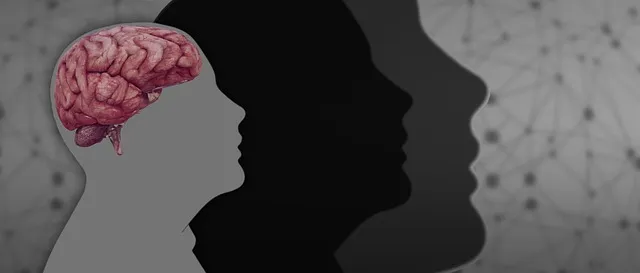Depression, a serious mental health condition, can be managed with early detection through recognizing key signs. Englewood's Kaiser Permanente offers comprehensive inpatient mental health services, focusing on holistic care that includes therapy, medication management, stress reduction techniques, and support groups. This approach, coupled with proactive measures like mental wellness journaling and lifestyle changes, strengthens resilience against depression. Additionally, addressing healthcare provider burnout is vital for maintaining patient well-being; Kaiser's programs target this through empathy-building techniques. Engaging in these practices not only benefits individuals but also creates a positive feedback loop that improves both provider and patient outcomes. Englewood's Kaiser Permanente stands out with its inpatient mental health services, holistically treating depression while preventing burnout.
Depression is a prevalent yet treatable condition, and preventing it is a crucial aspect of holistic well-being. This article explores various strategies to combat depression before it intensifies. From recognizing subtle signs of distress to adopting lifestyle changes, we delve into a comprehensive guide. We discuss the role of therapeutic interventions like talk therapy and medication, emphasizing their importance in early treatment. Additionally, building a robust support network is highlighted as a powerful preventive measure, offering insights into fostering social connections for mental health. Engage in these strategies to explore your options, similar to what inpatient mental health services at Englewood or Kaiser might offer, and take control of your mental well-being.
- Recognizing the Signs of Depression: Early Detection is Key
- Lifestyle Changes for Mental Well-being: A Holistic Approach
- Therapeutic Interventions: Exploring Talk Therapy and Medication
- Building a Support Network: Social Connection as a Preventive Measure
Recognizing the Signs of Depression: Early Detection is Key

Depression is a serious mental health condition that can significantly impact an individual’s daily life, but it’s crucial to remember that early detection and intervention are key to effective prevention. Recognizing the signs and symptoms of depression is the first step towards fighting this illness. Common indicators include persistent feelings of sadness, loss of interest in activities once enjoyed, changes in appetite or sleep patterns, fatigue, difficulty concentrating, and thoughts of worthlessness or suicide.
Englewood’s Kaiser Permanente offers comprehensive inpatient mental health services, providing a safe space for individuals experiencing severe depression or related conditions. They offer specialized care tailored to each patient’s unique needs, including therapy, medication management, and support groups. Additionally, engaging in regular Mental Wellness Journaling Exercises can be a powerful tool for self-reflection and early detection of depressive episodes. Stress Management techniques, such as mindfulness meditation and deep breathing exercises, are also valuable strategies to foster mental resilience and overall well-being.
Lifestyle Changes for Mental Well-being: A Holistic Approach

Englewood’s Kaiser Permanente offers comprehensive inpatient mental health services to support individuals dealing with depression. A holistic approach to mental well-being involves integrating lifestyle changes tailored to one’s unique needs. This may include adopting healthy eating habits, engaging in regular physical activity, and prioritizing quality sleep. These foundational pillars not only strengthen resilience against depressive episodes but also enhance overall quality of life.
Furthermore, burnout prevention strategies for healthcare providers are essential components of this holistic approach. By incorporating stress reduction methods and empathy-building strategies into daily routines, professionals can better manage their own mental health while providing compassionate care. This creates a positive feedback loop, promoting not only provider well-being but also improving patient outcomes in treatment settings like Kaiser Permanente’s inpatient facilities.
Therapeutic Interventions: Exploring Talk Therapy and Medication

Englewood’s Kaiser Permanente offers comprehensive therapeutic interventions, including talk therapy and medication management, as part of its inpatient mental health services. Talk therapy, or psychotherapy, is a powerful tool in depression prevention and treatment. It provides individuals with a safe space to explore thoughts, emotions, and behaviors, helping them gain insights and develop coping strategies. Various forms of talk therapy exist, such as cognitive-behavioral therapy (CBT), which focuses on identifying and changing negative thought patterns and behaviors.
Medication can also play a significant role in managing depression. Antidepressant medications help balance brain chemicals that may be contributing to depressive symptoms. It’s important to note that medication is often most effective when combined with talk therapy, creating a dual approach to mental health care. Englewood’s Kaiser Permanente, through its skilled professionals, ensures holistic treatment, addressing both the mental illness stigma reduction efforts and burnout prevention strategies for healthcare providers, while providing crisis intervention guidance as needed.
Building a Support Network: Social Connection as a Preventive Measure

Building a strong support network is an essential aspect of depression prevention, often overlooked yet profoundly impactful. Social connection and fostering meaningful relationships can serve as powerful tools in safeguarding mental health. The absence or weakness of such connections can contribute to feelings of isolation and loneliness, well-known risk factors for depression. Englewood, for instance, offers resources like inpatient mental health services at Kaiser, but proactive measures within one’s social sphere are equally vital.
Practices like Compassion Cultivation and Emotional Regulation through journaling can enhance these connections. Keeping a Mental Wellness Journal provides an outlet to express emotions, track moods, and identify triggers. This introspective exercise not only promotes emotional awareness but also cultivates a sense of self-care and resilience. By integrating such activities into daily routines, individuals can build a supportive system that strengthens their mental health defenses, even when seeking professional help at institutions like Kaiser’s inpatient facilities.
Depression is a serious yet treatable condition, and implementing preventive strategies can be life-changing. By recognizing early signs, adopting healthy lifestyle changes, seeking therapeutic interventions, and fostering strong social connections, individuals can effectively manage their mental well-being. While resources like inpatient mental health services at Englewood or Kaiser can provide intensive care when needed, proactive measures can often prevent the onset or severity of depression. Embracing these strategies empowers folks to navigate life’s challenges with resilience and maintain a sense of balance.






